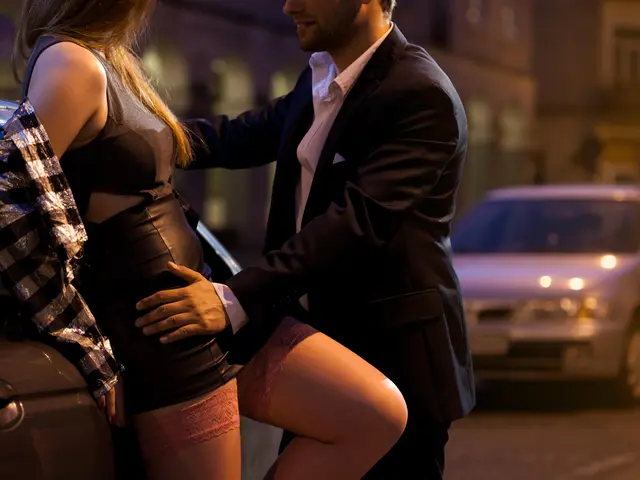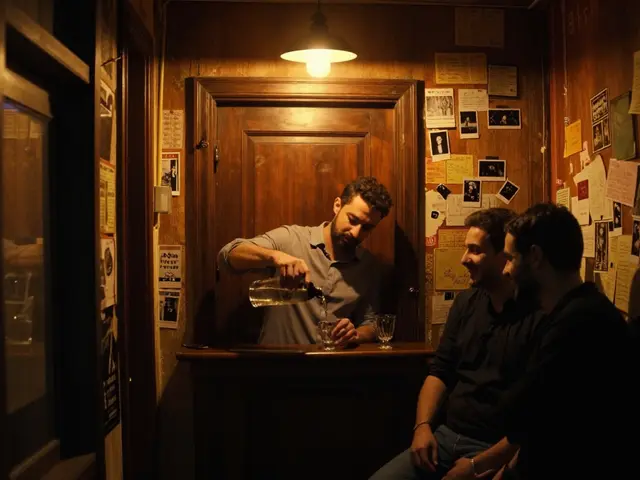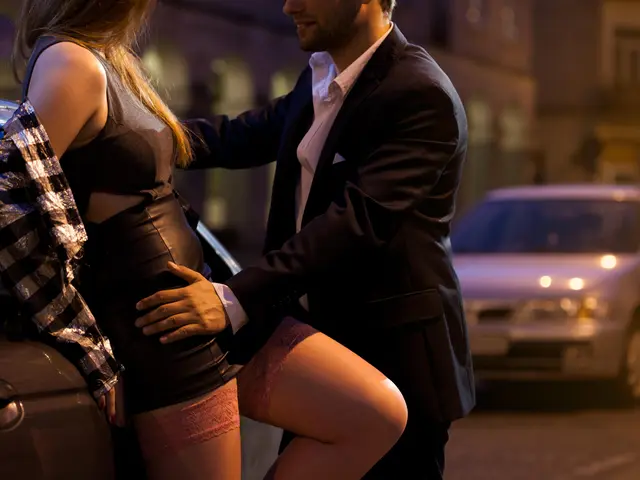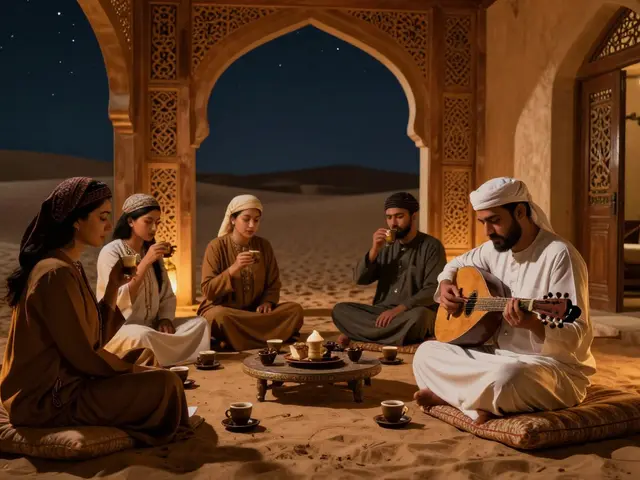Paris doesn’t sleep when the sun goes down-it comes alive.
Forget the quiet cafés and candlelit bistros you see in postcards. At night, Paris transforms into a city of neon-lit alleyways, jazz-filled basements, rooftop lounges with skyline views, and underground clubs where the music pulses until dawn. This isn’t just about drinking-it’s about feeling the rhythm of a city that knows how to party without losing its soul.
Le Comptoir Général
Step through a hidden doorway in the 10th arrondissement and you’re in a surreal world of vintage furniture, hanging plants, and mismatched lamps. Le Comptoir Général isn’t a bar. It’s an experience. The decor feels like a forgotten colonial explorer’s attic, and the drinks are just as unexpected: hibiscus-infused gin tonics, smoked rum cocktails, and house-made shrubs. Live music spins from Afrobeat to French chanson on weekends. No one comes here just to get drunk. They come to get lost-in the music, the stories, the weirdly beautiful chaos.
La Chope des Halles
If you want real Parisian grit with a side of history, this is your spot. Open since 1872, La Chope des Halles is one of the last remaining traditional bistros that stays open past midnight. The walls are stained with decades of smoke and laughter. The beer is cold, the steak frites are hearty, and the waiters don’t care if you’ve been there an hour or four. Locals still gather here after midnight, swapping stories over glasses of Beaujolais. It’s not glamorous. It’s not Instagrammable. But it’s authentic. And in a city full of curated experiences, that’s rare.
Belleville’s Street Bars
Walk down Rue de la Fontaine au Roi in Belleville and you’ll find a stretch of tiny, unmarked bars that locals swear by. There’s no sign, no menu, just a flickering light and a door slightly ajar. Inside, you’ll find students, artists, and old-timers sipping cheap wine from plastic cups. The vibe is raw, unpolished, and full of energy. Try Bar des Arts for live acoustic sets or Le Très Petit Club for hip-hop nights. These places don’t advertise. They survive because people keep coming back. If you want to feel like a local, skip the tourist traps and wander here after 10 p.m.

Le Baron
Le Baron is the kind of place where you might bump into a celebrity-or at least someone who looks like one. Tucked behind a discreet entrance on Rue du Faubourg Saint-Honoré, this members-only club feels like a secret society for the stylish. The crowd is a mix of fashion insiders, musicians, and international jet-setters. The music shifts from indie rock to house, depending on the night. Dress code? Think dark jeans, leather jackets, and confidence. You don’t need an invite, but you do need to look like you belong. It’s not cheap, but it’s one of the few places in Paris where the nightlife still feels exclusive without being pretentious.
Le Perchoir
For a view that steals your breath, head to Le Perchoir. Perched on the 7th floor of a building in the 11th arrondissement, this rooftop bar offers panoramic views of Paris-Eiffel Tower, Notre-Dame, and the city lights stretching into the distance. The cocktails are crafted with care: lavender-infused gin, yuzu soda, and smoked salt rims. On clear nights, the terrace fills with couples, friends, and solo travelers all sipping quietly, watching the city glow. It’s not a club. It’s a moment. And it’s the perfect way to end a night before heading home.
La Java
Since 1912, La Java in the 19th arrondissement has been a sanctuary for music lovers. This historic venue started as a dance hall and still feels like one. On weekends, it hosts everything from punk gigs to electronic sets, with a crowd that runs from teens to retirees. The walls are covered in concert posters from the last century. The sound system is old-school but powerful. You won’t find VIP sections or bottle service here-just people dancing, sweating, and screaming along to songs they’ve known since they were kids. It’s raw. It’s real. And it’s one of the few places in Paris where the music still matters more than the brand.
Bar de l’Hôtel
Don’t let the name fool you. Bar de l’Hôtel isn’t in a hotel-it’s in a quiet courtyard behind a nondescript door on Rue du Faubourg Saint-Antoine. Inside, it’s all velvet booths, dim lighting, and a bartender who remembers your name after one drink. The cocktail list is small but brilliant: a Negroni made with house-smoked gin, a whiskey sour with a hint of maple and black pepper. The crowd is quiet, thoughtful. This isn’t a place to dance. It’s a place to talk. To listen. To forget the world outside. Open until 3 a.m., it’s the kind of spot you stumble into and never want to leave.

La Cigale
La Cigale is a Parisian institution that’s been rocking since 1890. This concert hall-turned-nightlife spot draws crowds for its eclectic lineup: French indie bands, international DJs, and even occasional opera nights. The interior is ornate-gilded ceilings, red velvet curtains, and a stage that feels like it’s seen a hundred revolutions. The energy is electric, but never chaotic. People come here to experience music, not just to drink. If you’re in Paris on a Thursday or Friday night and want to see something that feels both historic and fresh, this is your ticket.
Le Refuge
Hidden beneath a bookstore in the 6th arrondissement, Le Refuge is a speakeasy that feels like a time capsule. The entrance is unmarked. You need to know the password-or at least look like you do. Inside, it’s all candlelight, leather-bound books, and cocktails named after French poets. The bartenders mix drinks with precision and patience. No one rushes you. No one takes a photo. It’s a place for quiet conversation, slow sips, and the occasional jazz trio playing in the corner. It’s expensive. It’s hard to find. But if you make it in, you’ll remember it for years.
La Machine du Moulin Rouge
Yes, the Moulin Rouge is touristy. But La Machine du Moulin Rouge? That’s something else. Located in the same building, this hidden club opens after the main show ends. It’s where the dancers, musicians, and stage crew unwind. The music is loud, the lights are flashing, and the crowd is wild. You’ll see burlesque performers dancing with strangers, DJs spinning French house, and people in sequins laughing until they cry. It’s not polished. It’s not safe. But it’s the most alive you’ll feel in Paris after midnight. No tickets needed-just show up after 1 a.m. and let the chaos take you.
Paris nightlife isn’t about checking off spots-it’s about finding your rhythm.
Some nights, you’ll want to dance till sunrise at La Java. Other nights, you’ll crave the quiet of Le Refuge with a perfectly balanced cocktail. There’s no single way to experience Paris after dark. The magic is in the variety. The city doesn’t force you into one scene. It lets you choose your own adventure. Whether you’re sipping wine on a rooftop, dancing in a 1920s ballroom, or stumbling out of a basement bar at 4 a.m., you’re not just visiting Paris-you’re living it.
What’s the best time to start nightlife in Paris?
Parisians don’t start their nights early. Most bars and clubs don’t fill up until after 10 p.m. The real energy kicks in around midnight. If you arrive before 11, you’ll likely be one of the first people there. If you want to feel the pulse of the city, wait until after midnight. That’s when the locals show up, the music gets louder, and the atmosphere shifts from casual to electric.
Is Paris nightlife safe for tourists?
Generally, yes. Most nightlife areas like Le Marais, Saint-Germain, and Belleville are well-lit and patrolled. Stick to busy streets, avoid isolated alleyways after 2 a.m., and keep your valuables out of sight. Pickpocketing can happen in crowded clubs, so use a crossbody bag and avoid flashing cash or phones. If you’re unsure about a neighborhood, ask a local bartender-they’ll tell you what’s safe and what to skip.
Do I need to make reservations for Paris clubs?
It depends. Places like Le Baron or Le Perchoir often have cover charges and sometimes require reservations, especially on weekends. Smaller bars like Le Comptoir Général or La Chope des Halles don’t take bookings-you just show up. If you’re planning to visit a popular spot on Friday or Saturday, check their Instagram or website. Many post their weekly lineups and let you reserve a table or buy tickets in advance. For the hidden spots, though, spontaneity is part of the fun.
What’s the dress code in Paris nightlife?
Parisians dress with intention. You don’t need designer labels, but you should avoid sweatpants, flip-flops, or sportswear. Dark jeans, a nice shirt, boots or loafers, and a jacket usually work everywhere. At upscale spots like Le Baron or Le Perchoir, women often wear dresses or tailored pants, and men skip the sneakers. At underground bars like those in Belleville, anything goes-as long as you look like you care. The key isn’t luxury-it’s effort. Even if it’s just a clean t-shirt and well-fitting pants, it makes a difference.
Are there any free nightlife options in Paris?
Yes. Many bars in Belleville and the 13th arrondissement have no cover charge and drinks under €8. Some jazz clubs like Sunset Sunside offer free entry for early shows (before 10 p.m.). Walk along the Seine after dark-you’ll find street musicians, open-air cinema nights in summer, and pop-up art installations. You don’t need to spend money to feel the energy. Sometimes the best moments happen on a bench with a bottle of wine and the city lights behind you.
What’s the last train in Paris?
The metro runs until around 1:15 a.m. on weekdays and 2:15 a.m. on weekends. After that, you’ll need to take the Noctilien night buses, which run all night on major routes. They’re safe and reliable, but less frequent. Taxis and Uber are available, but prices surge after midnight. If you’re planning to stay out late, check the last train times on the RATP app. Better yet, plan your night so you’re near a metro stop before the final train leaves.





